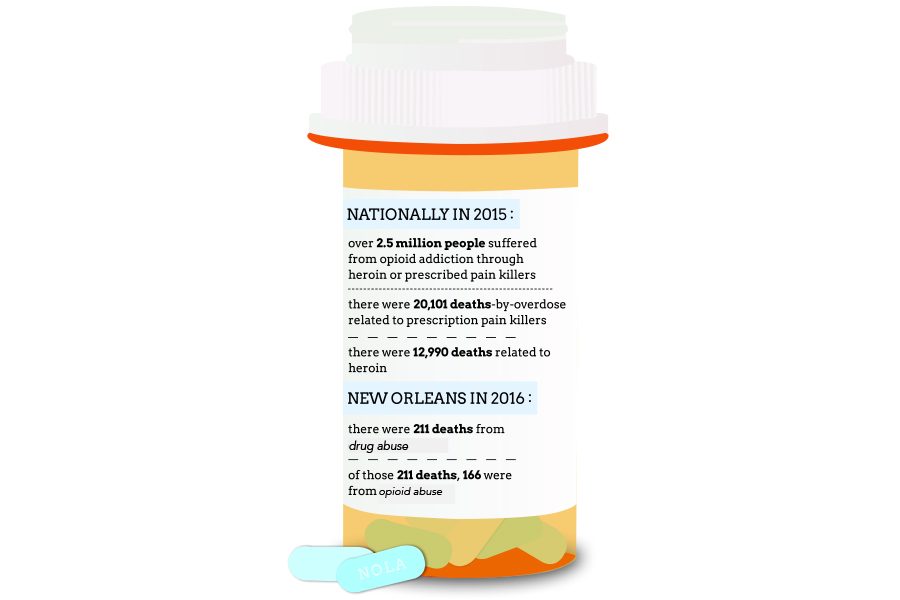New Orleans takes major step in alleviating opioid epidemic
Opioid addiction has become an epidemic in the U.S. New Orleans Mayor Mitch Landrieu has taken the initiative to help fight this problem by equipping officers of the New Orleans Police Department with naloxone, a drug used to revive victims of overdose. If the city can properly implement this initiative, it will help strategically alleviate the opioid epidemic in New Orleans.
When administered, naloxone can quickly reverse the effects of opioids. It can be acquired and administered in different forms, some of which require training and others which do not.
Last year, 166 people died from opioid overdose in New Orleans alone. In 2015, it was reported that more than 2.5 million people in the U.S. suffer from addiction to heroin or prescription pain killers. Of those addicts, tens of thousands died from overdoses the same year.
In light of the increased numbers of opioid overdoses, firefighters and emergency medical personnel in New Orleans were provided with naloxone to aid victims of overdose. It is essential that police officers are trained to administer the drug, though, because they are typically the first to arrive in an emergency situation.
Landrieu, in addition to his naloxone initiative, has declared the opioid epidemic in New Orleans a public health threat rather than a public safety threat. This classification is important because it determines how victims of overdose will be treated after they are revived by police. It is also significant in that it demonstrates how the city government is going to properly address opioid addiction.
By calling the epidemic a public health threat, the focus will be on treating victims of overdose instead of arresting them. Additionally, steps will be taken to educate the public in preventing addiction.
Based on the number of people who suffer from addiction in the U.S., cities throughout the country should be working to implement programs and initiatives similar to Landrieu’s. Naloxone in the hands of police has the potential to save many of the thousands of lives lost each year from opioid overdose.
Not everyone, however, believes naloxone should be supplied to local law enforcement officers. The main argument against the use of naloxone is that it would give addicts more opportunities to abuse drugs following recovery from overdose. These opponents suggest that if addicts know there is a way to be revived, they will not experience consequences for their actions. This argument is especially relevant with the increasing availability of Narcan, a prescription naloxone-based nasal spray. When addicts have the means of obtaining a revival drug, it could trigger their habits.
If opponents of naloxone use are worried the drug will be abused and contribute to drug addiction, perhaps they should focus on banning prescription drugs like Narcan. Supplying naloxone to NOPD and other local law enforcement agencies, however, would mean providing an incredibly useful drug to accountable individuals who could ensure revived victims of overdose receive treatment.
New Orleans is beginning to take immense strides in fighting the opioid epidemic in the U.S. Cities that have not already done so should follow suit and make naloxone available to emergency responders. Other cities should also treat opioid addiction as a public health issue to ensure victims of overdose are treated properly. By doing so, we can continue to fight, and hopefully eliminate, opioid addiction in the U.S.
This is an opinion article and does not reflect the views of The Tulane Hullabaloo. Daniel is a senior at Newcomb-Tulane College. He can be reached at [email protected].
Your donation will support the student journalists of Tulane University. Your contribution will allow us to purchase equipment and cover our annual website hosting costs.

















Leave a Comment